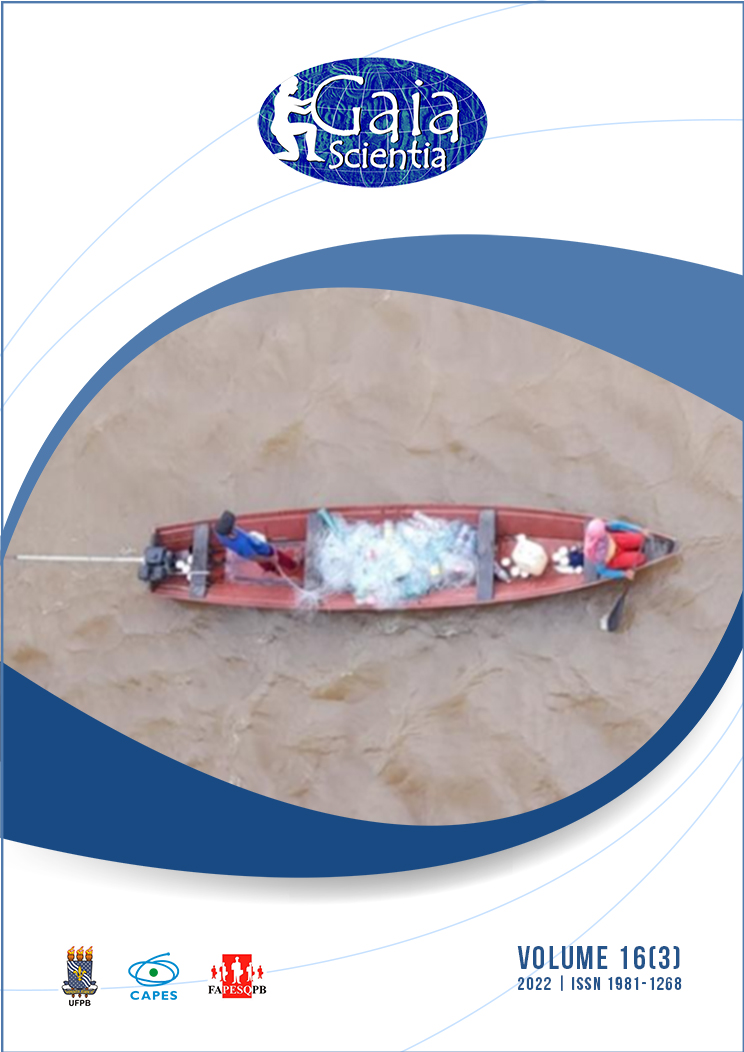Environmental aspects and temporal analysis of fish cultures in the Jaru river basin, Rondônia state
DOI:
https://doi.org/10.22478/ufpb.1981-1268.2022v16n3.62754Abstract
In the State of Rondônia there is an increase in aquaculture activities, where fish farming stands out for its high production. However, effluents from this activity without prior treatment can cause environmental impacts on water quality and changes in environmental aspects. Thus, the objective of this study was to analyze the environmental aspects, the temporal evolution of fish farms from 2000 to 2020 and to analyze the water quality of two fish farms in the Jaru river basin, Rondônia, Brazil. The data were obtained with the free software QGIS 2.18.13 and images from the LANDSAT 5 and 8 satellites, as well as through analysis of the water of two fish farms. In the analysis of the temporal evolution of the APP in the rivers, a deficit of vegetation was identified, with 5.7% of suppression. In addition, 56.6 hectares of water dam constructions were found in APPs, possibly used as fish farms. The result of the BOD parameter for small fish farming (PP) is in disagreement with CONAMA resolutions nº 357/2005 and CONAMA nº 430/2011, as it presented values higher than those described by the resolution. In this way, this research contributes to goals 06 and 12 of the Sustainable Development Goals (SDGs), strengthening research and adequate management procedures, reducing pollution and minimizing the use of chemical products.










